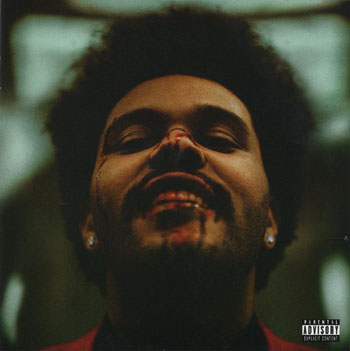 After Hours - The Weeknd - (Import)
After Hours - The Weeknd - (Import)
Canadian singer-songwriter Abel Tesfaye, who goes by the name The Weeknd, has been one of the big voices in rhythm n’ blues over the past decade. Though he’s been active since 2011, his career was propelled by the Grammy-winning 2016 album ‘Starboy’, and a brief affair with singer Selena Gomez added to his glam quotient.
The Weeknd’s latest album ‘After Hours’ has received a great initial response. Though his falsetto vocal style is pretty much the same, he sings songs of love, hope, angst and self-realisation effectively, and there’s a clear 1980s radio-pop influence in the compositional style, mixed with the explicit nature of modern hip-hop lyrics. The deluxe edition has a few bonus tracks and alternate remixed versions.
“Take off my disguise, I’m living somebody else’s life, suppressing what I was inside,” he sings on the opening track Alone Again. The highlights are the hip-hop laced Heartless, with its harmony-filled stretch before the climax, In Your Eyes, with its unconventional saxophone parts, and Blinding Lights, a song on longing where he sings, “I can’t sleep till I feel your touch”. The remix by electronica band The Chromatics has an edgy feel.
Scared To Live uses the “I hope you don’t mind portion” from Elton John’s Your Song interestingly, whereas Save Your Tears and the title track impress with simple melodies and lush arrangements.
Though The Weeknd has been personally involved in all aspects of the album’s creation, he takes the help of ace producer Max Martin on five tracks. Yet, one feels there's a certain sameness on many of the tracks, and the number of remixes could have been cut down. On the positive side, this is good anytime music, that sounds great playing in the backdrop.
Album: After Hours
Artiste: The Weeknd
Genre: Rhythm n' Blues
Label: XO/ Republic Records
Rating; ****
By Narendra Kusnur
Narendra Kusnur is one of India’s best known music journalists. Born with a musical spoon, so to speak, Naren, who dubs himself Kaansen, is a late bloomer in music criticism. He was (is!) an aficionado first, and then strayed into writing on music. But in the last two decades, he has made up for most of what he didn’t do earlier.
